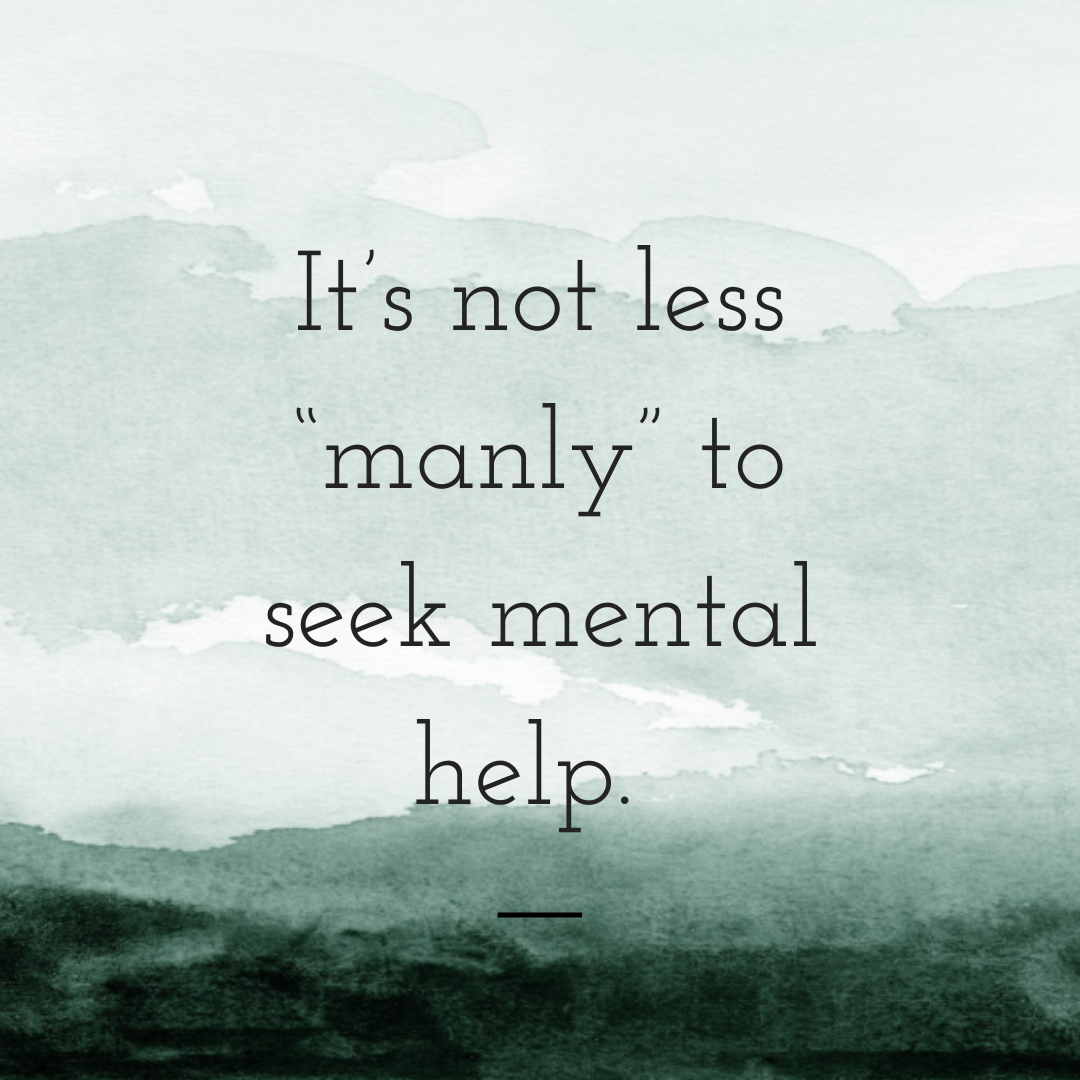Breaking the Silence: Men's Mental Health Matters
By Dr. Jessica Pae, Psy.D

Breaking the Silence: Men's Mental Health Matters
While mental health has been a topic that has gained more attention, one crucial aspect, men’s mental health still remains largely undiscussed. Despite progress, societal expectations and stigmas surrounding masculinity can prevent men from seeking the help they need. The unique challenges men face regarding mental health, the importance of addressing these issues, and practical steps for fostering a supportive environment are crucial topics.
The Silent Struggle
From a young age, many boys are taught to embody traditional masculine traits such as strength, stoicism, and self-reliance. Phrases like "man up" or "boys don't cry" are commonly heard. This only reinforces the idea that expressing vulnerability is a sign of weakness. This cultural conditioning often leads men to internalize their struggles avoiding discussions about their mental health.
The pressure to fulfill societal roles—such as provider, protector, and/or problem-solver—can be overwhelming. Men may feel an immense burden to meet these expectations, leading to stress, anxiety, and depression. The fear of being perceived as inadequate or "less of a man" can deter them from seeking help.
The Consequences of Silence
The statistics surrounding men's mental health are alarming. According to the World Health Organization (WHO), men are less likely to seek mental health support, yet they have higher rates of suicide compared to women. In many countries, suicide is one of the leading causes of death among men. This further shows how needed these types of conversations are for the men in our community and beyond.
Untreated mental health issues can have far-reaching consequences. They can affect personal relationships, job performance, and overall quality of life. Moreover, the inability to cope with stress and emotions can lead to unhealthy coping mechanisms, such as substance abuse or aggressive behavior.
Breaking Down Barriers
One of the most effective ways to combat the stigma around men's mental health is to encourage open and honest conversations. Normalizing discussions about feelings and mental well-being can help men feel more comfortable seeking support. Many public figures have helped break down the barrier to conversations about mental health.
Media and public figures play a significant role in shaping societal perceptions. When male celebrities and influencers share their mental health journeys, it can inspire others to do the same. Positive representation in movies, TV shows, and social media can also contribute to breaking down stereotypes. Another force that is helping break the stigma are programs that are created to aid in these types of conversations.
Educational programs focused on mental health awareness can be instrumental. Schools, workplaces, and community organizations should offer resources and training to recognize the signs of mental health issues and provide guidance on how to seek help. These programs are able to equip those who feel unequipped, helping support communities.
The Power of Counseling
Counseling can be a transformative experience for men struggling with mental health issues. There are several ways that counseling can make a difference:
- Safe Space for Expression: Counseling provides a confidential and non-judgmental environment where men can openly discuss their thoughts and feelings. This safe space is crucial for breaking the cycle of silence.
- Professional Guidance: Therapists can help men understand their emotions, identify underlying issues, and develop effective coping strategies. This professional guidance can be particularly beneficial for those who have never addressed their mental health concerns before. It is important to see someone who is trained in this field so that they can support you best.
- Personalized Approaches: Counselors tailor their approaches to meet the individual needs of their clients. Whether through cognitive-behavioral therapy (CBT), talk therapy, or other methods, men can receive personalized care that addresses their specific challenges. All of our counselors at Restoration Psychology can adjust their methodology to best fit the needs of each individual client. Everyone is unique, therefore, therapy should fit the unique needs of each person.
- Building Resilience: Counseling can help men build emotional resilience, equipping them with the tools to manage stress, anxiety, and other mental health issues more effectively. This resilience is vital for maintaining long-term mental well-being. Continual therapy is a great way to help aid in one’s journey to growth.
- Improving Relationships: Mental health issues often strain personal relationships. Through counseling, men can learn to communicate better, resolve conflicts, and foster healthier connections with their partners, family, and friends. Relationships are a key factor in one’s overall well-being.
Men's mental health is a critical issue that requires our attention and action. By challenging societal norms, promoting open conversations, and providing support, we can create a world where men feel empowered to prioritize their mental well-being. Together, we can build a more compassionate and understanding society where mental health is a priority for everyone.
If you personally or a man in your life is struggling with their mental health, please feel free to reach out to us at info@restorationpsychology.com or 720-647-1522. We desire to help individuals in their healing journey as they learn to experience grace and compassion along the way.
Go Back